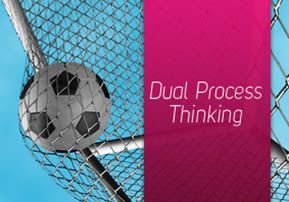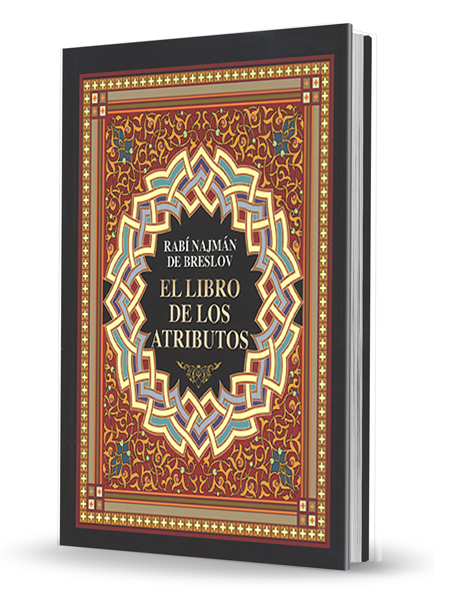
Dual Process Thinking
Imagine that you’re achieving all your goals and attaining success you never dreamed of; with dual process thinking, you’ll be able to do just that…

The Talmud says that, at times, it’s wise to reflect on the last day of one’s life because in the end the truth comes out. At a funeral, the real purpose of life is recognized even by people who have dedicated their lives to the pursuit of pleasure and financial gain. For when a person leaves this world and his family and friends gather around to eulogize him, what will they say about him? Will they mention how much he ate and drank? Or how many pleasures he indulged in?
Rather, at that moment of truth, they will speak about his good deeds, his kindness and compassion, and his connection, however slight, to the ideals of Judaism and Torah – all of his other interests and pursuits in life are completely ignored. In the end, everyone admits to the falseness and vanity of a life that is devoted to pleasure.
So let’s do what the Talmud suggests: Moshe is lying in bed. His family and friends gather around him – He sees them but is too weak to speak. His breathing is labored. “What did I do with my life?” he muses. “Did I accomplish anything meaningful? Did I have the courage to pursue what was important to me? Did I serve G-d with the abilities that He gave me? No. I didn’t…” thought Moshe. He continued: “I thought that I’d have more time to think about these questions…and…now…on my last day – I finally know the sad truth – My grandiosity exposed – Who was I to demand that I’d live forever? What will happen to me and my family now?
Sounds morbid? It’s really not – The Talmud is actually prescribing a powerful motivational device for self-improvement because we’re still alive now – our lives are continuing – so we don’t have to wait until we’re out of time – we can act now!
Imagine that you were just saved from a terminal illness and given a new lease on life – what ten goals would be important to you? – write them down. Now out of your ten goals, select the three that are the most important to you.
 There is an interesting area of psychological research known as dual process thinking. Did you know, for example, that if you visualize an apple a chair or a sunset that the vividness of your mental imagery can be enhanced by keeping the image of your mother in mind at the same time – that’s right – you’re mother. In fact, this finding was replicated for many ethnic groups – the image of mother is a powerful and universal motivational image.
There is an interesting area of psychological research known as dual process thinking. Did you know, for example, that if you visualize an apple a chair or a sunset that the vividness of your mental imagery can be enhanced by keeping the image of your mother in mind at the same time – that’s right – you’re mother. In fact, this finding was replicated for many ethnic groups – the image of mother is a powerful and universal motivational image.
Nothing against mothers, but I began to wonder what would happen if people kept G-d in mind while they visualized. The results were amazing. For people who were intrinsically spiritual (as opposed to extrinsically “religious” types) keeping G-d in mind was even a more powerful aid to mental visualization than the image of mother was. I found that this was true even for people who were not practicing a religion, as long as they had intrinsic spirituality.
So here’s how it works. First we practice keeping Hashem in mind; then, we do it again while you see yourself achieving your goals. When you do this, just let yourself naturally imagine how you will actualize your goals. Some of you will visualize yourself carrying out your life’s mission in vivid detail – as if you were watching a movie. Some of you will visualize this but with less clarity and others may not visualize it at all. Don’t be concerned about this – just thinking about your life goals while keeping Hashem in mind is a powerful method.
A few suggestions before you begin – When you think about Hashem, you might imagine Him in any of the following ways:
His Unity – that He is the basic Oneness that unifies the whole creation; that He is beyond space and time; that He is infinite; that he is great, powerful, loving and forgiving – Really, however you think about Hashem “our G-d” will be fine. Try this out for 60 seconds. Close your eyes, if you wish, and just think about Hashem in any way that comes to mind now.
You can experiment with different ways of thinking about Hashem and see which one you like the best. Then, once you’ve found the best way, for you, you can humbly request that Hashem transfer your awareness of Him to your breathing – that way every single time that you breath, whether it’s an inhalation or an exhalation, you will remain aware that it is Hashem “our G-d”, who is breathing you. By the way, isn’t it the greatest gift possible that Hashem gives us permission, in the Shema, to call him “our G-d?”
Take another 60 seconds to try this out.
Now we’re going to use dual-process thinking to combine your awareness of Hashem with your life-goals. Gently continue to breath with an awareness that Hashem is with you…you are intimately connected to Him…He is very close to you, and He is pleased with you for working on yourself right now.
As you continue to breathe gently with an awareness of Hashem’s presence, look down at your goals one at a time. Just let your mind think about each goal in any way it wishes to. While you continue to remain aware of Hashem, he will lead the process for you – it’s as easy as that – your strengthening your emuna. Now take your time…breath slowly…give yourself another few minutes (more if you wish) to meditate on each of your three goals. When you have finished – remember to thank Hashem and yourself for this experience. You may want to promise yourself that you deserve to repeat this exercise many times until you begin to feel what Rabbi Brody calls your spiritual awareness increasing. I have personally found that as a result of doing this exercise for several minutes twice a day – upon waking and retiring – that I’m automatically more connected to my true purpose in this world. I hope that you will find great happiness and success from this method. You can continue to refine it further in your own creative ways to meet your own needs. Alternatively, you may want to record parts of this script onto a tape or CD so that you listen to it with fewer distractions. Some of you are more visual learners and some of you are more auditory.
May Hashem Bless us all with long healthy lives dedicated to the deals of Judaism and Torah.











Tell us what you think!
Thank you for your comment!
It will be published after approval by the Editor.